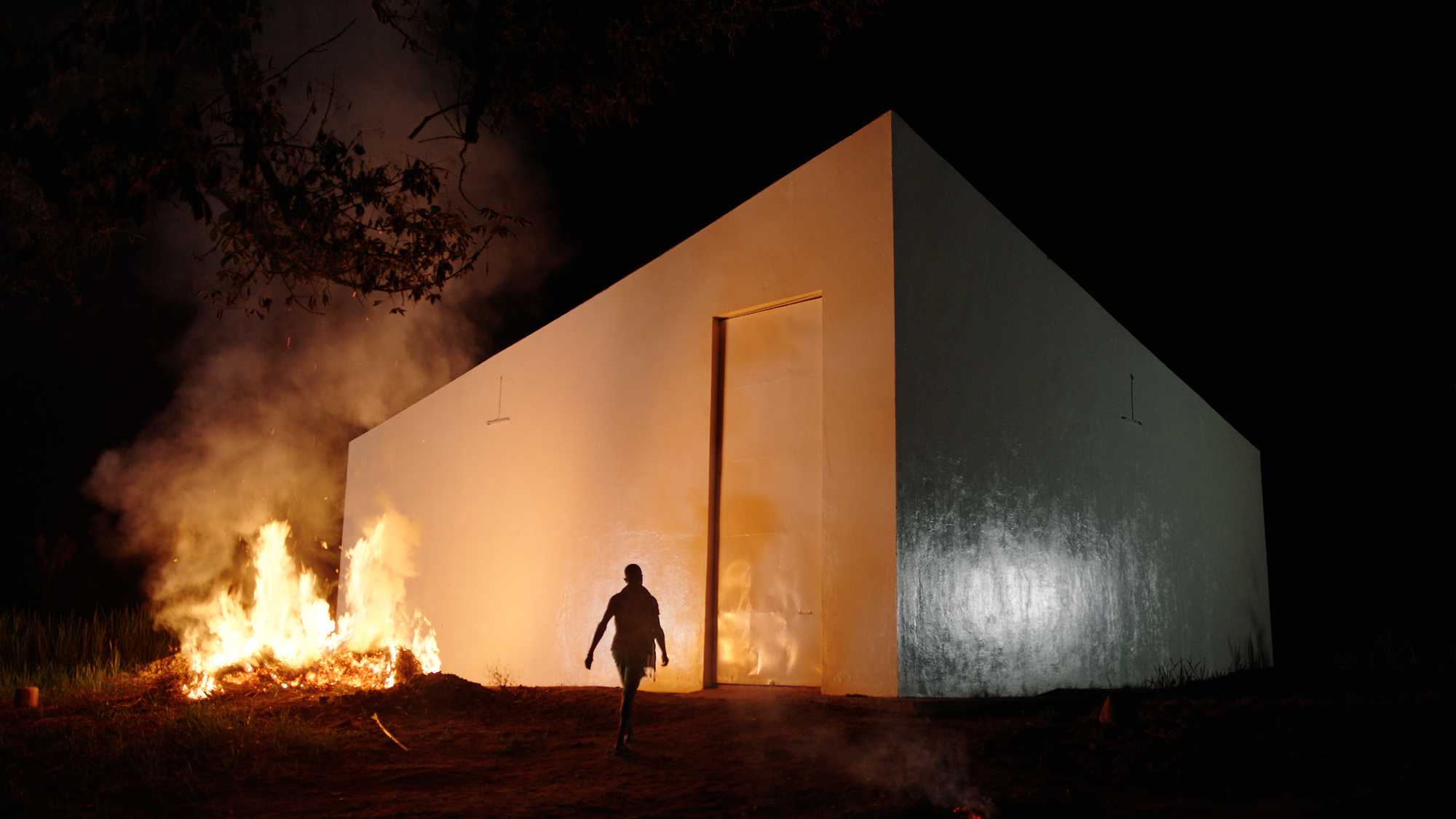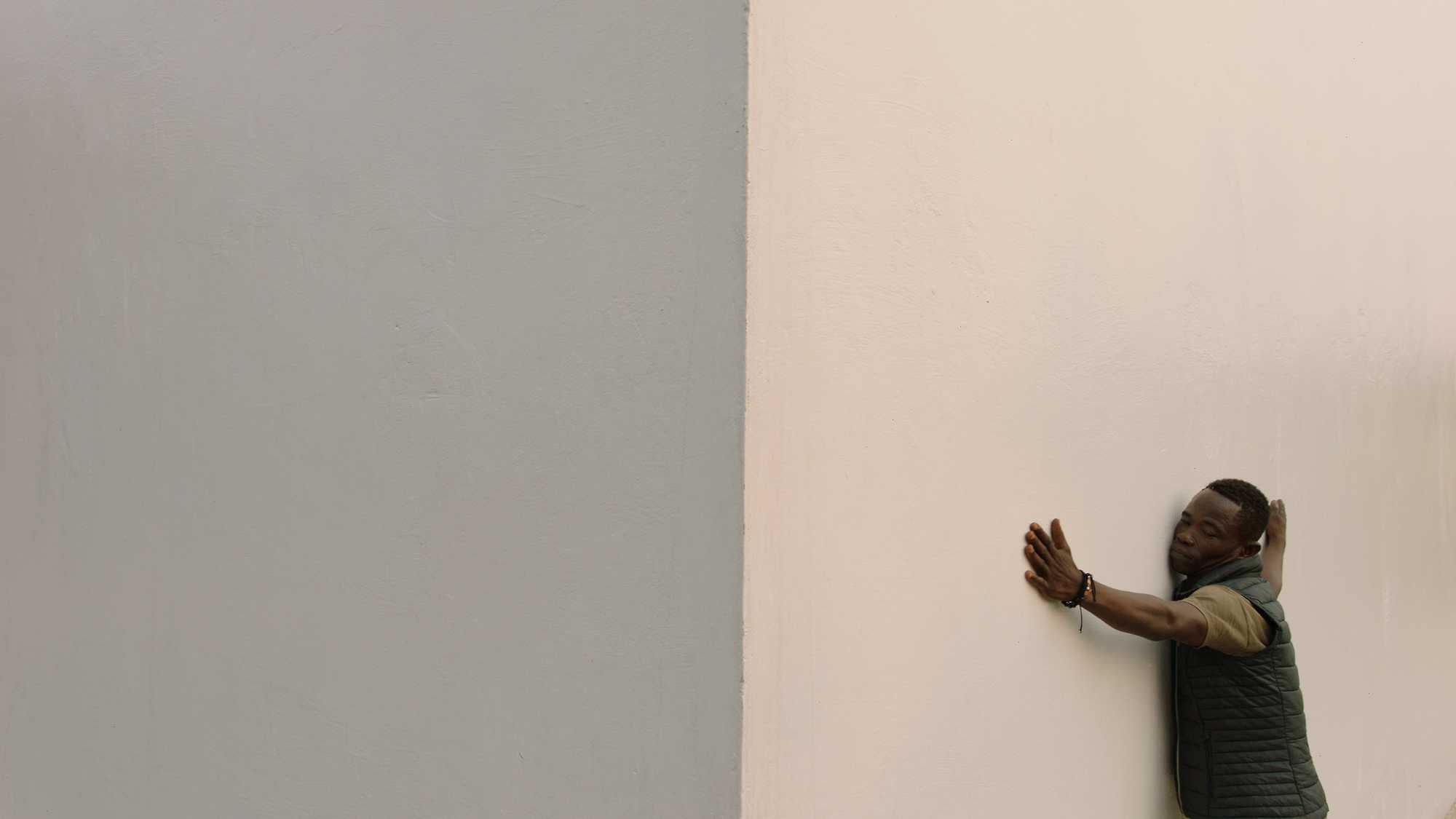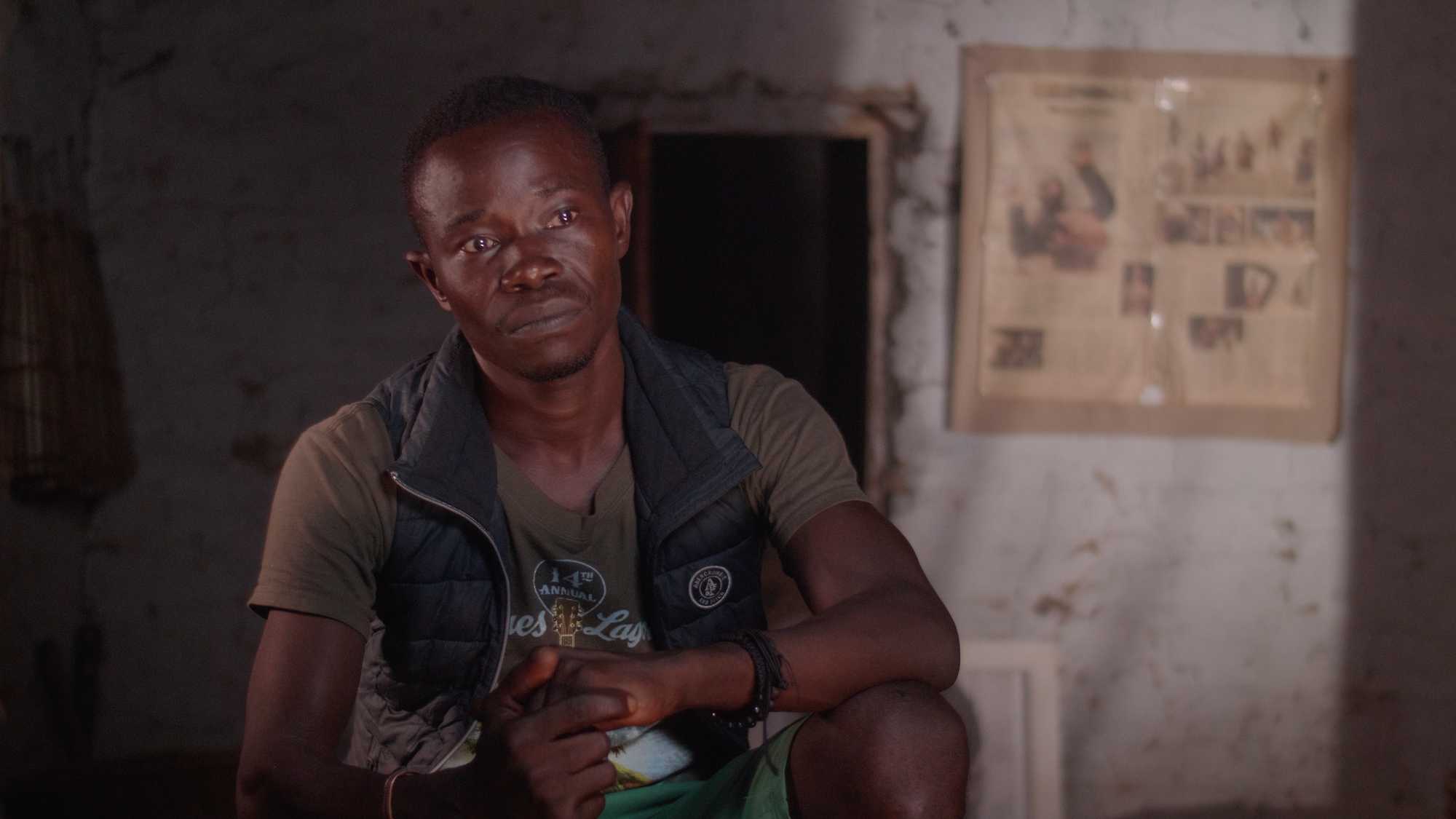Can an indigenous art economy compete with a multinational plantation? Artist Renzo Martens travels into the Congo to see if he can bring local art to the international stage and return the profits where they belong.



The film has a heartfelt quality, and one can feel the sincerity with which Martens sets out to tie together the seemingly overly distant ends of these different worlds.
Screened as part of NZIFF 2021
White Cube 2020
Dutch artist Renzo Martens has a dream: to kickstart an indigenous art economy among Congolese plantation workers. This will supplant the modern slave labour of the multinational palm oil industry, where labourers break their backs for less than a dollar a day. The local community are intrigued by the plan, but sceptical that this is just the latest in an endless series of colonialist promises destined to be broken.
When his first attempt at a communal art workshop in 2011 is ruthlessly shut down by the plantation owners (Unilever, proud sponsors of the Tate Modern), it seems their reservations were well founded. Martens vows to be more strategic with his second. In the abandoned Lusanga plantation, he sets up a sculpture workshop. The local work is scanned and reproduced in chocolate for European gallery audiences, with the proceeds from sales going directly back to the villagers. A $2000 windfall spurs the artists’ ambitions and New York becomes the next port of call for the Cercle d’Art des Travailleurs de Plantation Congolaise (Art Circle of Congolese Plantation Workers), with representative Matthieu Kasiama along for the ride (and some mutual culture shock).
Can Martens’ access to the international art market create a sustainable way of life for the new collective and allow them to recover a modicum of power, after more than a century of exploitation? Martens’ record of his experiences is a lucid, challenging and inspiring exploration, hinged on the possibility of an international art economy that benefits the working class that funded and built it. — Andrew Langridge